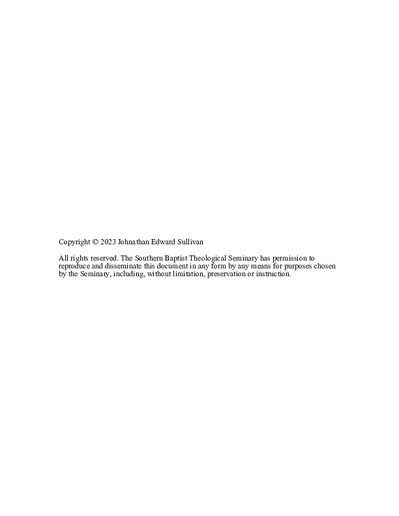The Kingdom Agents or, the Twin Operations of Kingdom and Empire in the Trials of Jesus and Paul
Abstract
Both Luke and Acts end with a strikingly similar series of events: the protagonists of those books (Jesus and Paul, respectively) are called before Roman judicial tribunals who repeatedly find them innocent of any charges worthy of death, but nonetheless are forced for political reasons to condemn them. This parallel construction of events executes a core Lukan literary theme: demonstrating how the Jesus community can live and thrive in the shadow of repressive human empires unreceptive to the upside-down kingdom of God. It does so by painting Christ as an enigmatic and ontologically external agent of the kingdom whose life and work are undecipherable to the Roman authorities, and by casting Paul as an internal agent, capable by birth and background of navigating the empire’s power structures in the name of the kingdom.
Chapter 1 provides a brief overview and introduction of the argument. Chapter 2 explains the twin and overarching thematic thrusts of Luke: (1) the vision of a kingdom of God that will exist at the end of time, in which justice and peace reign; and (2) the way in which the Jesus community, as citizens of that future kingdom, must enact the kingdom’s values—and, specifically, its inversion of worldly power structures—in the here-and-now. Chapter 3 explains the Roman legal system to which the protagonists of Luke-Acts are subjected, and traces out in brief the Lukan accounts of their trials. Chapter 4 examines the strategies of Christ and Paul, and finds that Christ employs strategies (misdirection and silence) that signal his externality, while Paul weaves his way through the system as one born to it. These strategies, this thesis argues in the same chapter, were a necessary part of demonstrating for the early Jesus community how to interact in a transformative way with the Roman world. Chapter 5 offers up the practical application suggested by these strategies. Finally, Chapter 6 concludes the analysis, arguing that the response of each protagonist was aimed at fulfilling his purpose: Christ, to supernaturally defeat evil at Golgotha and providing an example of silent suffering; and Paul, to bear the name of the kingdom into the heart of the empire.

